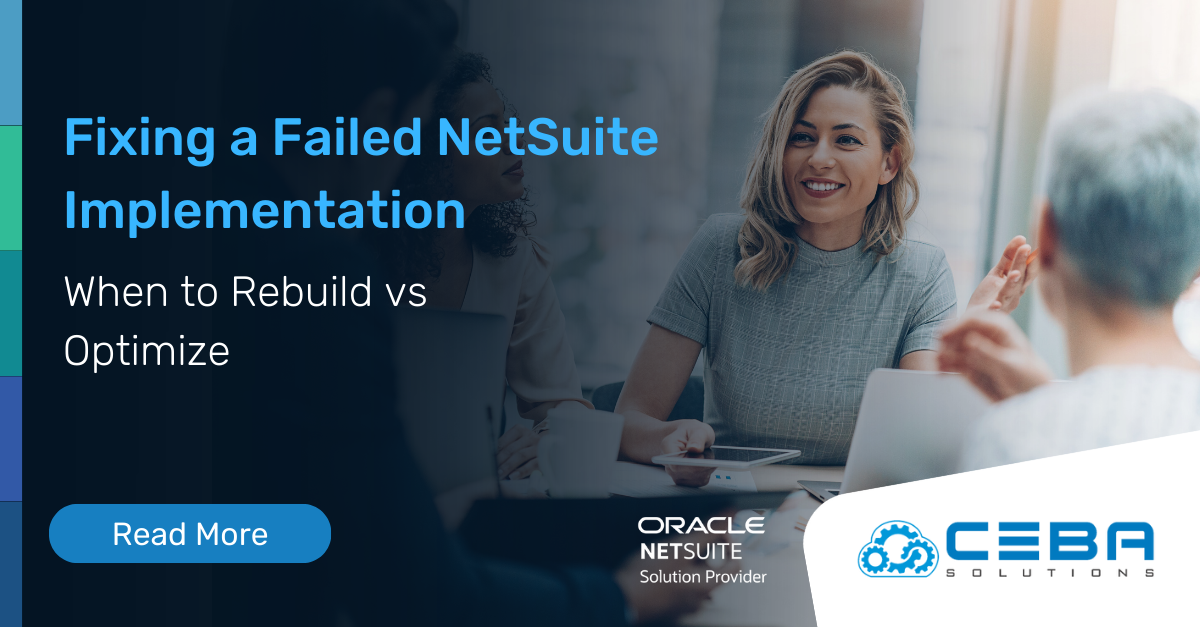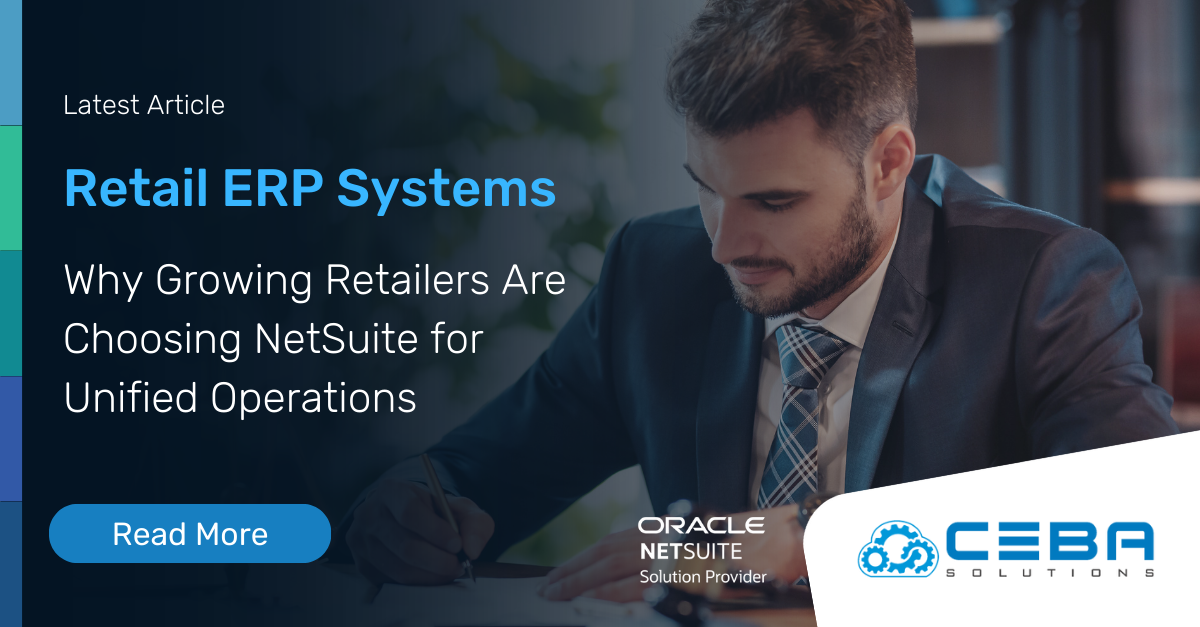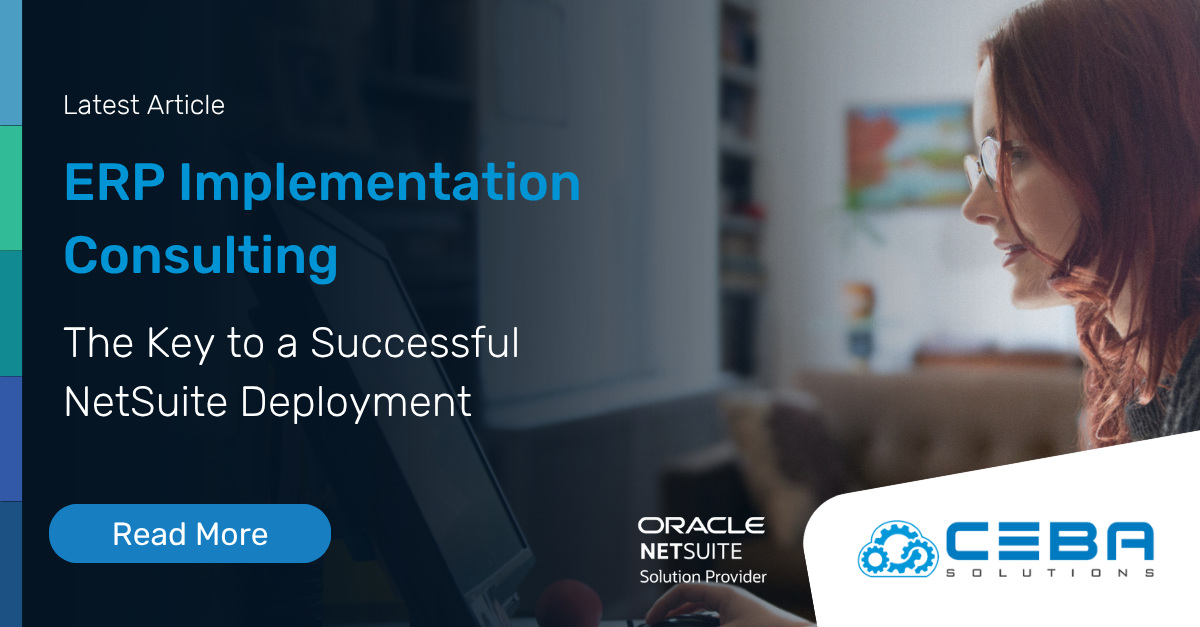
Driving Success From The Top: The Role of Executives in the ERP Implementation Journey
Driving Success From The Top: The Role of Executives in the ERP Implementation Journey
The successful implementation of an Enterprise Resource Planning (ERP) system is crucial for modern businesses aiming to stay competitive. While the responsibility for leading an ERP implementation may fall on various stakeholders within an organization, the role of executives is particularly vital in driving success from the top. In this article, we will explore the importance of executive involvement throughout the ERP implementation journey and highlight the key responsibilities executives hold at each stage of the process.
Understanding the Importance of Executive Involvement in ERP Implementation
ERP, or Enterprise Resource Planning, is a comprehensive software solution that enables organizations to manage and automate various processes across different departments, such as finance, human resources, supply chain, inventory, manufacturing and customer relationship management. By centralizing data and facilitating seamless communication between departments, ERP systems enhance collaboration, eliminate data silos, and enable informed decision-making.
For example, in the finance department, ERP systems can automate financial processes such as accounts payable and receivable, journal management, and financial reporting. This automation not only reduces manual errors but also improves the accuracy and timeliness of financial information. With real-time access to financial data, executives can make data-driven decisions and monitor the financial health of the organization more effectively.
In the human resources department, ERP systems can streamline processes such as recruitment, onboarding, performance management, and employee training. By automating these processes, executives can ensure consistent and standardized practices across the organization, leading to improved employee satisfaction and productivity. ERP systems can also provide valuable insights into workforce analytics, enabling executives to identify skill gaps, plan succession, and optimize resource allocation.
The Strategic Role of Executive Leaders in ERP Implementation
Executives play a crucial role in shaping the strategic direction of an organization. By aligning the ERP implementation with the overall business strategy, executives set the stage for success. They must actively participate in defining the ERP implementation goals, identifying key performance indicators, and establishing a roadmap for achieving the desired outcomes.
Taking Ownership During the ERP Selection Process
Executives should also be involved in the selection process to ensure that the chosen ERP system aligns with the organization's goals across all departments, not just the departments of the representatives who are leading the evaluation process. By taking a hands-on approach, executives can ensure that the ERP system meets the organization's current and future needs, maximizing the return on investment.
Ensuring Adequate Resources are Available to Ensure Success
Executives are also needed to advocate for the allocation of necessary resources, including budget, personnel, and time, to ensure a smooth implementation process. Their commitment to the project will inspire and motivate employees at all levels, fostering a culture of change and innovation that is essential for ERP success.
Engaging Team Members
Executives should actively engage with employees throughout the implementation process. They should communicate the benefits of ERP adoption, address concerns, and provide training and support to ensure a smooth transition. By leading by example and demonstrating their commitment to the ERP initiative, executives can encourage employee buy-in and minimize resistance to change.
Setting Clear Goals for the ERP Project
Another important aspect of pre-implementation planning is setting clear goals and objectives. Executives must collaborate closely with key stakeholders to define these goals and objectives for the ERP implementation. These goals should align with the company's strategic vision and address specific pain points or improvement opportunities within the organization. By involving executives in this process, organizations can ensure that the goals set for the implementation are well-aligned with the overall business strategy.
Clear goals provide the framework for measuring the success of the implementation and keeping the project on track. Executives play a crucial role in ensuring that these goals are well-defined and achievable. They need to consider various factors such as the organization's current state, future growth plans, and industry trends to set realistic and meaningful goals. By doing so, executives can guide the implementation team towards success.
The Executive's Role During ERP Implementation
Effective communication and collaboration are critical components of a successful ERP implementation. Executives must facilitate open channels of communication between the implementation team, relevant stakeholders, and employees impacted by the change. By providing regular updates and actively addressing concerns or resistance, executives can foster a supportive environment that encourages employee buy-in and minimizes disruptions during the implementation process.
One way executives can ensure effective communication is by organizing regular town hall meetings or forums where employees can voice their questions and concerns. These gatherings provide an opportunity for executives to address any misconceptions, clarify the implementation timeline, and reinforce the benefits of the ERP system. By actively listening to employee feedback and addressing their concerns, executives can build trust and create a sense of shared ownership in the implementation process.
In addition to communication, collaboration is also crucial during an ERP implementation. Executives should encourage cross-functional teams to work together, breaking down silos and fostering a culture of collaboration. By promoting collaboration, executives can tap into the diverse expertise of different departments, ensuring a comprehensive understanding of the organization's needs and aligning the ERP system with those needs.
Overcoming Implementation Challenges
ERP implementations often encounter challenges along the way, ranging from technical issues to resistance from employees. Executives must be proactive in addressing these challenges, leveraging their leadership skills to motivate the team, resolve conflicts, and maintain focus on the end goal. By providing guidance and support, executives can help the organization navigate through potential obstacles and keep the ERP implementation on track.
One common challenge during ERP implementation is resistance from employees who may be hesitant to embrace change. Executives can address this challenge by implementing a comprehensive change management strategy. This strategy may include training programs, workshops, and one-on-one coaching sessions to help employees understand the benefits of the ERP system and develop the necessary skills to effectively use it. Executives can also lead by example, demonstrating their own commitment to the implementation and showcasing the positive impact it will have on the organization.
Technical issues can also pose challenges during ERP implementation. Executives can mitigate these challenges by working closely with the IT department and external consultants to ensure a smooth integration of the ERP system with existing infrastructure. By actively participating in discussions and decision-making processes related to technical aspects, executives can provide valuable insights and ensure that the implementation aligns with the organization's overall IT strategy.
Executives should be prepared to make timely and informed decisions when unexpected challenges arise. By staying informed about the progress of the implementation and actively engaging with the implementation team, executives can quickly identify potential roadblocks and take necessary actions to keep the project on schedule.
The Executive's Role in Post-Implementation Phase
Even after the ERP system goes live, executives continue to play a crucial role in ensuring its long-term success and driving continuous improvement.
Business Leaders have a multifaceted role in the post-implementation phase of an ERP system. They are responsible for evaluating the success of the implementation, ensuring continuous improvement and system optimization, and driving the organization towards achieving its goals and objectives.
Evaluating ERP Implementation Success
Post-implementation evaluation allows executives to assess the success of the ERP implementation by comparing actual outcomes against predefined goals and objectives. This evaluation should involve collecting feedback from employees, stakeholders, and customers to identify areas of improvement and address any remaining issues.
Executives need to carefully analyze the results of the evaluation to gain insights into the effectiveness of the ERP system. They should consider factors such as user adoption, system performance, and the achievement of business objectives. By analyzing the results, executives can make informed decisions regarding further system optimization and process refinement.
This process should also take into account the impact of the ERP system on different departments and functions within the organization in order to evaluate how well the system integrates with existing processes and whether it has brought about the desired improvements in efficiency, productivity, and customer satisfaction.
Ensuring Continuous Improvement and System Optimization
ERP systems are not static; they require a continuous improvement approach to adapt to changing business needs. Executives should promote a culture of continuous learning and innovation, encouraging employees to leverage the system's capabilities fully.
Executives need to establish mechanisms for gathering feedback from end-users and other stakeholders on an ongoing basis. This feedback can help identify pain points, bottlenecks, and areas where the system can be further enhanced. By involving employees in the improvement process, executives can foster a sense of ownership and engagement, leading to a more successful ERP implementation.
Regular system reviews and audits are essential to identify areas for optimization. Executives should collaborate with IT teams and business units to identify opportunities for streamlining processes, automating tasks, and leveraging new features and functionalities of the ERP system.
Key Takeaways: The Executive's Role in Successful ERP Implementation
In summary, executives play a critical role in driving success from the top in the ERP implementation journey. By understanding the importance of ERP and its strategic significance to the organization, executives can lead the way in pre-implementation planning, ensure effective communication and collaboration during implementation, and drive continuous improvement in the post-implementation phase. The power of executive leadership, combined with their commitment and engagement, greatly influences the success of an ERP implementation.
Executive leaders have the power to influence organizational priorities and resource allocation. By prioritizing the ERP implementation and allocating the necessary resources, executives ensure that the project receives the attention it deserves. This commitment from the top creates a sense of urgency and dedication throughout the organization, leading to a smoother implementation process.









